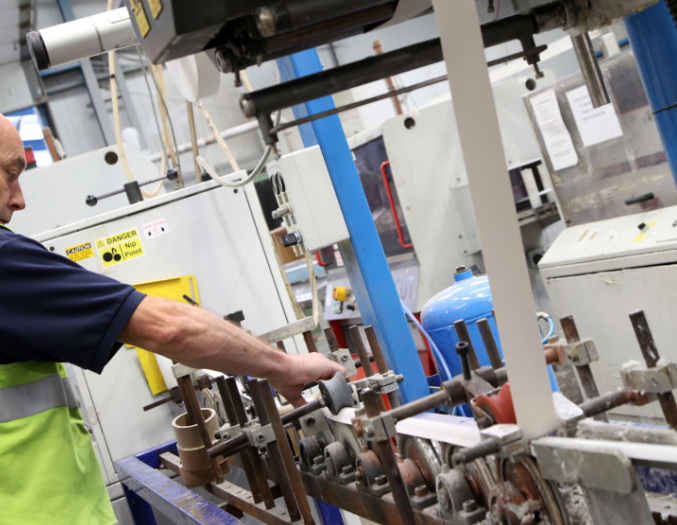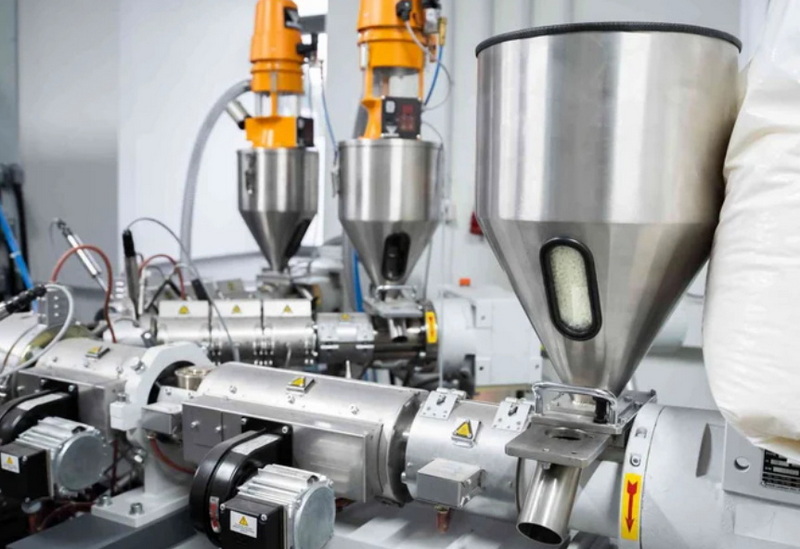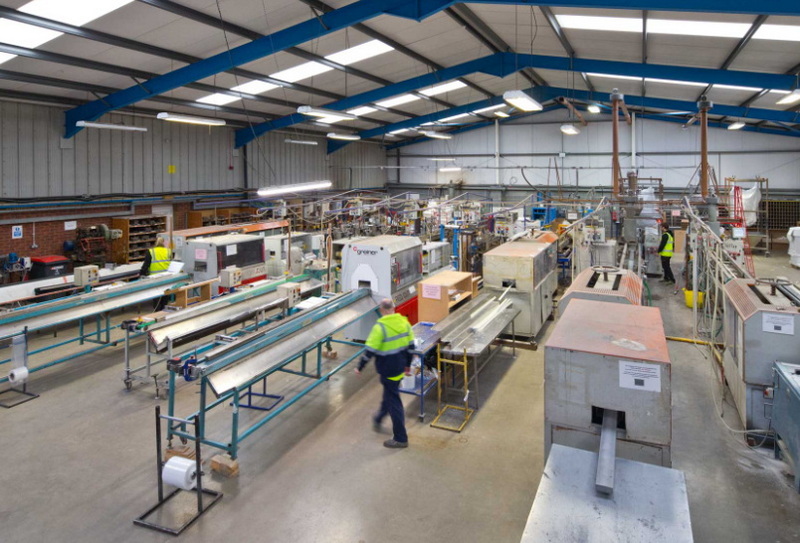Content Menu
● Understanding Your Production Needs
● Key Factors to Consider When Choosing a Supplier
>> 1. Supplier's Experience and Reputation
>> 2. Capabilities and Equipment
>> 3. Technical Support and Services
>> 4. Cost Considerations
>> 5. Location and Logistics
● Evaluating Potential Suppliers
● Best Practices in Extrusion Manufacturing
● Importance of Material Selection
● The Role of Design in Extrusion
● Conclusion
● FAQ
>> 1. What should I consider when assessing an extrusion production line supplier?
>> 2. How important is after-sales support?
>> 3. Can suppliers customize their equipment?
>> 4. What certifications should I look for in a supplier?
>> 5. How do I calculate total cost of ownership (TCO)?
● Citations:
Choosing the right extrusion production line supplier is crucial for any manufacturing business that relies on extrusion processes to create products. This decision can significantly affect production efficiency, product quality, and long-term profitability. In this comprehensive guide, we will explore the key factors to consider when selecting an extrusion production line supplier, including their capabilities, reputation, and support services.

Understanding Your Production Needs
Before you start searching for an extrusion production line supplier, it's essential to assess your specific production requirements:
- Type of Product: Determine the type of products you intend to manufacture (e.g., pipes, sheets, profiles).
- Material Compatibility: Identify the materials you will be using in the extrusion process. Different materials may require different types of extruders and tooling.
- Production Volume: Estimate your expected production volume to ensure that the supplier can meet your output requirements.
- Quality Standards: Establish the quality standards that your products must meet, including any industry-specific regulations.
Key Factors to Consider When Choosing a Supplier
1. Supplier's Experience and Reputation
- Industry Experience: Look for suppliers with extensive experience in the extrusion industry. A supplier with a proven track record is more likely to understand the complexities of your production needs.
- Customer Reviews: Research customer feedback and testimonials. Positive reviews can indicate reliability and quality service.
- Certifications: Check if the supplier holds relevant certifications (e.g., ISO 9001) that demonstrate their commitment to quality management.
2. Capabilities and Equipment
- Range of Equipment: Ensure that the supplier offers a variety of extrusion machinery suitable for your specific applications. This includes single-screw and twin-screw extruders, as well as downstream equipment.
- Technology Integration: Evaluate whether the supplier provides modern equipment with advanced control systems that enhance precision and efficiency.
- Customization Options: Determine if the supplier can customize equipment to meet your unique production requirements.
3. Technical Support and Services
- After-Sales Support: Reliable after-sales support is crucial for minimizing downtime. Ensure that the supplier offers maintenance services, spare parts availability, and technical assistance.
- Training Programs: Consider suppliers that provide training for your staff on operating and maintaining the equipment effectively.
- Emergency Services: Inquire about the availability of emergency support in case of equipment failure or other issues.
4. Cost Considerations
- Initial Investment vs. Long-Term Value: While cost is an important factor, it should not be the sole determinant. Consider the long-term value of investing in high-quality machinery that may have higher upfront costs but lower maintenance expenses over time.
- Total Cost of Ownership (TCO): Evaluate not just the purchase price but also energy consumption, maintenance costs, and potential downtime when calculating TCO.
5. Location and Logistics
- Proximity to Your Facility: A supplier located closer to your manufacturing facility can reduce shipping costs and lead times.
- Supply Chain Stability: Assess whether the supplier has a stable supply chain for raw materials necessary for production.

Evaluating Potential Suppliers
To ensure you choose the right extrusion production line supplier, follow these steps:
1. Request Proposals: Reach out to multiple suppliers for proposals based on your specific requirements.
2. Site Visits: If possible, visit the supplier's facility to see their operations firsthand. This can provide insight into their capabilities and quality control processes.
3. Ask Questions: Prepare a list of questions related to their experience, equipment capabilities, support services, and pricing structures.
4. Compare Offers: Analyze all proposals carefully, considering not only price but also service levels and equipment specifications.
Best Practices in Extrusion Manufacturing
To further enhance your understanding of choosing an extrusion production line supplier, it's beneficial to familiarize yourself with best practices in extrusion manufacturing:
- Regular Equipment Maintenance: Routine checks and maintenance prevent unexpected downtimes, reducing costly halts in production[4].
- Quality Assurance Protocols: Implementing rigorous quality control protocols ensures product consistency and avoids recalls or rejections[4].
- Innovative Approaches: Keeping up-to-date with industry trends and technological advancements helps maintain competitiveness[4].
- Data Monitoring: Collecting critical metrics related to temperature, pressure, motor load, and line speed can significantly enhance process control[7].
Importance of Material Selection
Material selection plays a pivotal role in extrusion processes. The right materials not only ensure optimal performance but also affect production efficiency:
- Consider materials like HDPE, PVC, or ABS based on their properties such as strength, flexibility, thermal resistance, and environmental exposure[11].
- Ensure uniform wall thickness in designs to prevent warping or defects during cooling[11].
The Role of Design in Extrusion
Designing parts for extrusion requires careful consideration:
- Simple profiles are easier to produce; complex shapes may require additional secondary operations[11].
- Collaborate closely with manufacturers during the design phase to optimize manufacturability while minimizing waste[11].
Conclusion
Selecting the right extrusion production line supplier is a critical decision that requires careful consideration of various factors including experience, capabilities, support services, and cost-effectiveness. By thoroughly evaluating potential suppliers based on these criteria and adhering to best practices in manufacturing, you can make an informed choice that aligns with your production needs and ensures long-term success in your manufacturing operations.

FAQ
1. What should I consider when assessing an extrusion production line supplier?
When assessing a supplier, consider their experience in the industry, range of equipment offered, customer reviews, certifications, after-sales support, training programs, and total cost of ownership.
2. How important is after-sales support?
After-sales support is crucial as it minimizes downtime through maintenance services and technical assistance when issues arise with the equipment.
3. Can suppliers customize their equipment?
Yes, many suppliers offer customization options to tailor their equipment according to specific production requirements or unique applications.
4. What certifications should I look for in a supplier?
Look for suppliers with certifications such as ISO 9001 which indicate adherence to quality management standards.
5. How do I calculate total cost of ownership (TCO)?
To calculate TCO, consider not only the initial purchase price but also ongoing costs such as energy consumption, maintenance expenses, potential downtime costs, and spare parts availability over time.
Citations:
[1] https://rpmindinc.com/best-practices-that-rubber-extrusions-manufacturers-use-to-design-perfect-products/
[2] https://rpmindinc.com/follow-the-checklist-before-choosing-aluminum-extrusion-suppliers/
[3] https://www.alcirclebiz.com/blogs/finding-the-best-aluminium-extrusion-supplier-7-key-factors
[4] https://www.kellerplastics.com/unlocking-potential-maximizing-results-in-the-plastic-extrusion-process/
[5] https://profileprecisionextrusions.com/choosing-an-aluminum-extrusion-manufacturer-partner/
[6] https://www.zetwerk.com/resources/knowledge-base/miscellaneous/quality-manufacturing-standards-for-supplier-selection-process/
[7] https://oden.io/blog/extrusion-best-practices-tips-and-tricks-from-industry-experts/
[8] https://plastiwin.com/uncategorized/how-to-buy-plastic-extrusion-equipment/
[9] https://www.twinscrew.net/en/article/How-to-Choose-the-Best-PVC-Pipe-Extrusion-Line.html
[10] https://www.ptonline.com/articles/how-to-get-peak-performance-efficiency-out-of-your-extrusion-line---part-i
[11] https://resmart.com/news/post/best-practices-for-designing-high-quality-extruded-parts.html
[12] https://www.clarkrandp.com/how-to-choose-the-right-company-for-your-next-extrusion-project/
[13] https://insights.made-in-china.com/A-Detailed-Guide-to-Selecting-the-Best-Pipe-Extrusion-Line-for-Your-Manufacturing-Needs_xGYtbFaMqmDe.html
[14] https://www.siliconeplastics.com/post/enhancing-product-design-with-plastic-extrusion-tips-and-techniques-for-manufacturers
[15] https://cfaminternational.com/3-tips-to-choose-the-right-extrusion-company-for-your-business/
[16] https://plasticextrusiontech.net/quality-control-and-testing-procedures-in-plastic-extrusions/
[17] https://jydjx.com/effective-maintenance-strategies-for-plastic-extrusion-machines/
[18] https://rpmindinc.com/things-consider-researching-plastic-extrusion-companies/
[19] https://www.ptonline.com/articles/how-to-select-the-right-tooling-for-pipe-extrusion
[20] https://jydjx.com/how-to-choose-a-extrusion-machine/
[21] https://www.yjing-extrusion.com/how-to-choose-the-right-pvc-pipe-extrusion-line-supplier-in-china.html
[22] https://drts.com/extruder-machine-manufacturer/
[23] https://www.schaeffler.es/remotemedien/media/_shared_media_rwd/01_company_1/suppliers_4/quality_1/supplier_evaluation_calculation_en.pdf






















